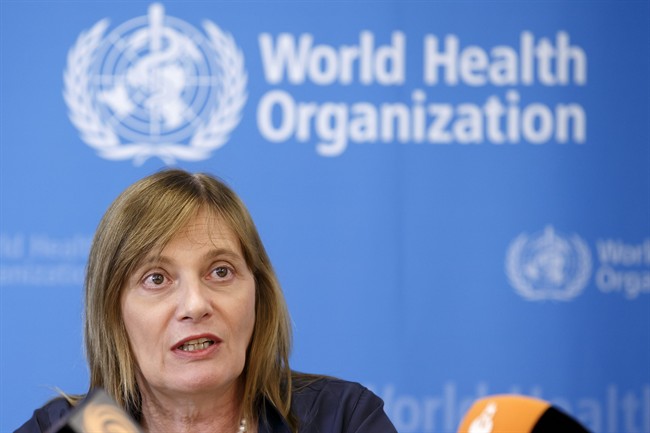DAKAR, Senegal – Beds in Ebola treatment centres are filling up faster than they can be provided, evidence that an outbreak in West Africa is far more severe than the numbers show, an official with the World Health Organization said Friday.

The outbreak sweeping Guinea, Liberia, Sierra Leone and Nigeria is already the largest and deadliest ever recorded, killing more than 1,060 people, according to the latest WHO figures.
But the U.N. health agency said Thursday that official counts of the dead and infected may still “vastly underestimate the magnitude of the outbreak.”
Doctors Without Borders likened the situation to a state of war and said the outbreak could last six more months.
“We’re running behind a train that is going forward,” Joanne Liu, the medical charity’s international president, told reporters in Geneva on Friday. “And it literally is faster than what we’re bringing in terms of a response.”
The flood of patients into every newly opened treatment centre is evidence that the official tolls aren’t keeping up, Gregory Hartl, a spokesman for WHO, said from Geneva.
Hartl said that an 80-bed treatment centre opened in Liberia’s capital in recent days filled up immediately. The next day, dozens more people showed up to be treated.
Meanwhile, he said that experts who are going house-to-house in Kenema, Sierra Leone, in search of infected people are discovering more cases.
Ebola, which causes a high fever, bleeding and vomiting, has no cure and no licensed treatment. The disease is usually found in eastern or central Africa, typically in rural, isolated communities, where outbreaks tend to be “self-limiting,” Hartl said.
By contrast, the current outbreak spread quickly to cities and the capitals of Guinea, Liberia and Sierra Leone, making it difficult to stop its spread.
—
Associated Press writer John Heilprin in Geneva contributed to this report.



Comments